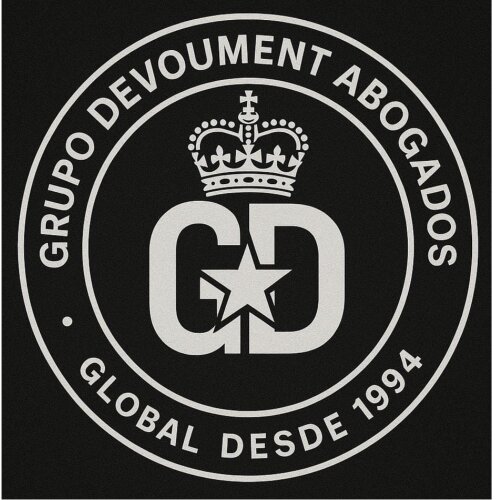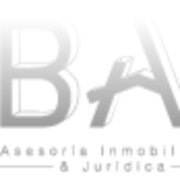Best Debt Capital Markets Lawyers in Colombia
Share your needs with us, get contacted by law firms.
Free. Takes 2 min.
Or refine your search by selecting a city:
List of the best lawyers in Colombia
About Debt Capital Markets Law in Colombia
Debt Capital Markets (DCM) in Colombia refer to the legal and financial framework that governs the issuance, trading, and regulation of debt instruments such as bonds, commercial papers, and other debt securities. Entities such as corporations, financial institutions, and the Colombian government use these instruments to raise funds from investors in both the local and international markets. The Colombian DCM is overseen by regulatory bodies that ensure transparency, investor protection, and the smooth functioning of these markets, which play a vital role in facilitating access to capital and supporting economic growth.
Why You May Need a Lawyer
Engaging a qualified lawyer specializing in Debt Capital Markets can be crucial for several reasons. Legal advisers help navigate the complex regulatory environment, structure debt issuances, and ensure compliance with both local and international laws. Common situations that may require legal help include:
- Issuing corporate or government bonds
- Structuring debt financing for infrastructure or corporate expansions
- Complying with disclosure and reporting obligations
- Negotiating terms with underwriters, investors, or syndicates
- Navigating cross-border debt transactions
- Managing regulatory inquiries or disputes related to securities issuance
- Advising on potential tax implications of debt instruments
- Assisting with restructuring or refinancing existing debt
Because mistakes or non-compliance can lead to financial penalties or reputation damage, consulting a knowledgeable legal professional is highly recommended.
Local Laws Overview
Colombian Debt Capital Markets are governed by a combination of local laws and regulations, with oversight from entities such as the Superintendencia Financiera de Colombia (SFC) and the Banco de la República. The main legal framework includes:
- Securities Market Law (Law 964 of 2005) - Sets out rules for issuing and trading securities in Colombia.
- Law 1328 of 2009 - Regulates the activities of financial intermediaries and market participants.
- Decree 2555 of 2010 - Provides detailed regulatory guidelines for activities in the financial and securities market.
- Regulations on public offerings - Includes procedures and mandatory disclosures for debt issuances.
- Cross-border regulations - Address rules for issuing debt outside of Colombia or by foreign entities within the country.
- Taxation rules - Govern interest, withholding, and other tax aspects related to debt capital market transactions.
It is vital for market participants to comply with these rules to avoid sanctions and to ensure smooth market access.
Frequently Asked Questions
What is a debt security in Colombia?
A debt security is a financial instrument, such as a bond or note, that represents a loan made by an investor to a borrower, typically a corporation or government entity, under specific terms including repayment schedule and interest rate.
Who regulates the Debt Capital Markets in Colombia?
The main regulatory authority is the Superintendencia Financiera de Colombia (SFC), which oversees market conduct, ensures compliance, and protects investors. The Banco de la República also plays a role in regulating macroeconomic aspects.
What types of debt instruments can be issued?
Issuers in Colombia may offer bonds, commercial papers, negotiable obligations, mortgage-backed securities, and other fixed-income instruments, subject to applicable regulations.
Who can issue debt securities in Colombia?
Debt securities can be issued by corporations, financial intermediaries, municipal and governmental entities, as well as foreign companies meeting local listing and registration requirements.
What is required to publicly offer debt securities?
Public offerings require registration with the SFC, full disclosure through an offering prospectus or memorandum, and adherence to reporting and transparency requirements established by regulatory authorities.
Are there restrictions for foreign investors?
Foreign investors can participate in Colombia's DCM, but must comply with foreign exchange regulations and may face certain restrictions depending on the type and maturity of the instrument.
What are the penalties for non-compliance?
Non-compliance can lead to fines, suspension of trading, cancellation of registration, or other legal sanctions for both issuers and intermediaries.
How do cross-border issuances work?
Cross-border issuances involve offering debt instruments to international investors or by foreign entities in Colombia. These require compliance with foreign exchange, local securities regulations, and possible coordination with regulators in other jurisdictions.
Is it necessary to work with a local lawyer for DCM transactions?
While not mandatory, engaging an experienced local lawyer is strongly recommended to help navigate the legal, regulatory, and tax issues that can arise in complex DCM transactions.
How are debt instruments taxed in Colombia?
Interest income from debt securities is subject to income tax, and withholding taxes may apply to payments to both residents and non-residents. The specific tax treatment varies depending on the instrument and type of investor.
Additional Resources
If you need more information or support related to Debt Capital Markets in Colombia, consider the following organizations and resources:
- Superintendencia Financiera de Colombia (SFC): Supervises and regulates securities and financial markets.
- Banco de la República: Colombia’s central bank, provides oversight and economic statistics.
- Bolsa de Valores de Colombia (BVC): The official stock and debt exchange where many instruments are listed.
- Colombian Securities Market Association (Asobolsa): Represents market participants and publishes research.
- Colombian Ministry of Finance and Public Credit: Issues regulations and policy updates for financial markets.
- Tax authorities (DIAN): Provides guidelines on tax matters associated with investment and securities.
Next Steps
If you are considering participating in Colombia’s Debt Capital Markets or need advice on a related transaction, consider these steps:
- Define your objectives, such as fundraising, investment, or compliance needs
- Gather relevant information and documents related to your planned transaction
- Identify legal professionals or firms with expertise in Colombian DCM law
- Schedule a consultation to discuss your specific situation and obtain tailored advice
- Follow legal guidance carefully and ensure all regulatory requirements are met before proceeding
- Stay informed about changes in local laws and market regulations to maintain ongoing compliance
Taking these steps with professional guidance can help you achieve your goals efficiently while minimizing legal and financial risks in Colombia’s evolving Debt Capital Markets.
Lawzana helps you find the best lawyers and law firms in Colombia through a curated and pre-screened list of qualified legal professionals. Our platform offers rankings and detailed profiles of attorneys and law firms, allowing you to compare based on practice areas, including Debt Capital Markets, experience, and client feedback.
Each profile includes a description of the firm's areas of practice, client reviews, team members and partners, year of establishment, spoken languages, office locations, contact information, social media presence, and any published articles or resources. Most firms on our platform speak English and are experienced in both local and international legal matters.
Get a quote from top-rated law firms in Colombia — quickly, securely, and without unnecessary hassle.
Disclaimer:
The information provided on this page is for general informational purposes only and does not constitute legal advice. While we strive to ensure the accuracy and relevance of the content, legal information may change over time, and interpretations of the law can vary. You should always consult with a qualified legal professional for advice specific to your situation.
We disclaim all liability for actions taken or not taken based on the content of this page. If you believe any information is incorrect or outdated, please contact us, and we will review and update it where appropriate.
Browse debt capital markets law firms by city in Colombia
Refine your search by selecting a city.














